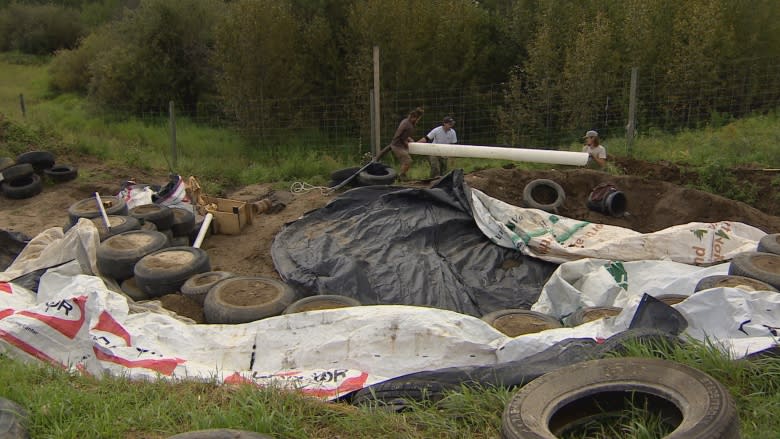Greenship, a self-sustainable greenhouse, being built west of Edmonton
It looks like a landfill.
But to those working on the Greenship north of Edmonton, it's going to be much more than that. The end goal is a self-sustaining greenhouse.
The concept is very similar to that of an Earthship — an off-the-grid home that relies little on public utilities and fossil fuels — except that a Greenship is used to primarily grow food.
On the funding page, the Greenship is described as a "self-sustainable passive solar greenhouse and learning space."
"It will apply thermal solar design for heating and cooling, collect rainwater, connect to solar electricity and take a focus on building with recycled material."
The majority of what is going into the project's build has either been donated or found. The goal of the project is to showcase what can be achieved through "salvaging, up-cycling and building with viable waste material."
A secondary goal is to "facilitate community learning as much as provide an example of an off-grid, year-round growing space in our northern climate."
Organizers say the idea is already grabbing attention.
"We have volunteers coming out to try and learn and ... discuss the designs and give suggestions, because they're thinking about it too," said Dori Lavy, the Greenship's construction captain.
"They're coming from all walks of life, we've had kids as young as four-years-old to couples in their 60s who are looking to retire and live comfortably on their own."
The build is going on at the Aspen Centre for Integral Living demonstration grounds, 40 minutes west of Edmonton. The produce grown in the Greenship will be sold at the centre.
The Greenship is something the project's president, Kurtis Ewanchuk, sees as part of his green living vision.
"Even with what we've been doing over the past seven or eight years, we have hundreds of people out on site a year seeing all these different technologies, different systems, how they can work together to create harmony within how humans live with natural patterns," said Ewanchuk.
"In permaculture, we really try to work with nature rather than work against it."
The crew expects to complete the project by spring or summer next year.




